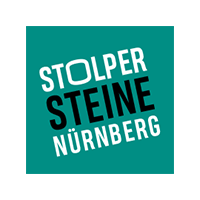Biography of Frieda Röderer, written by her granddaughter Ruth White
Frieda was born into the large Jewish Mosbacher family in Fürth, Germany that included her brothers Hugo and Emil. Her parents were Sigmund Mosbacher and Caroline Sichel. She married Gustav Röderer in 1911 in Wurzburg and later that same year gave birth to a daughter, Anna (my mother). Gustav had previously been married to a Mrs. Neuberger, a widow with a son Ludwig. She and Gustav had a son, Fritz, but she sadly died in childbirth, leaving Gustav with two little boys. When Gustav volunteered for the German military in WWI, Frieda was left to parent three young children for the nearly four years that he was away. When Anna turned 14, Gustav died of a heart attack on a streetcar while commuting to work.
My mother told me that Frieda was religious and a member of the chevra kadisha or "holy society" of her temple, a group of volunteers who prepare a body for burial. In 1933, my parents were married in Frieda’s Nuremberg apartment instead of a synagogue because the Nazi Brown Shirts were already terrorizing Jews. My parents were able to emigrate to the US in 1936 leaving Germany from Hamburg where her mother bid them good-bye. The next year, Frieda arrived in Oakland for a six month visit with my parents and year old son Leon, my older brother. Despite pleas to remain with them, Frieda returned, fearful that staying would have put her brother Hugo in jeopardy with the authorities.
In February 1940, Frieda, Hugo and his wife Clemy boarded a train in Nuremberg bound for Holland with the hope of emigrating from there to the US. Entering Holland illegally meant being interned for some time before being cleared to reside there. They were subsequently able to obtain visas and tickets for passage on a boat leaving Rotterdam for the States on May 10th, 1940. Tragically, on May 9th the German army bombed the port of Rotterdam, quashing their hopes of reuniting with their children in the near future.
For three years they lived in Amsterdam, trying to find other avenues of escape. Living in the same apartment building as Dutch relatives, their situation gradually worsened under the increasing constraints placed on Jews by the German occupation. Round-ups of German Jews began from lists compiled by Dutch Jews and eventually all three were captured in raids and sent to Westerbork, a holding station prior to departure to a labor or extermination camp. From there, Frieda was sent by train to a Polish extermination camp, Sobibor, where 35,000 Jews from the Netherlands were gassed between March and July 1943. Prior to being herded into gas chambers, they were forced to write letters to their relatives to let them know that they had arrived at a labor camp. And then they were murdered.
I was born approximately nine months after my grandmother’s death. My Mom told me that I was an unplanned pregnancy, an ‘accident’. Though I’m not a religious person, it seems something in the universe was at work to bring the seed of my being to life so close to her death.



